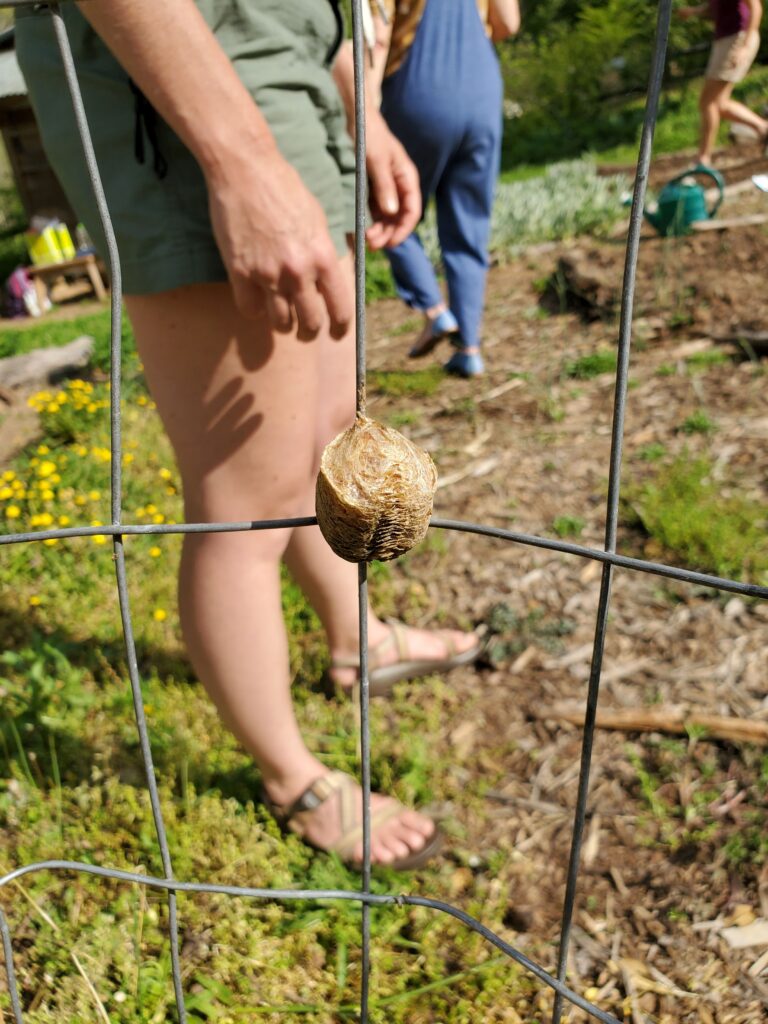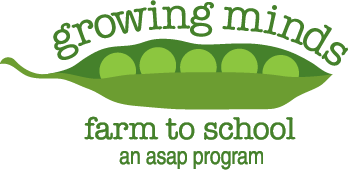Whitney Rea Smith is the Director of Family and Community Partnerships at Verner Center for Early Learning. Based in Asheville, Verner provides 5-star comprehensive care and education to over 300 children and their families at three centers and through a home-based Early Head Start program. Verner received a Growing Minds mini-grant this spring to purchase lumber, books, and educational supplies for their school garden. For our May 2021 Farm to School Spotlight, Whitney shares some insights and stories from the Verner school garden, as well as a list of what they’re growing and some of the planting projects they’re planning this year.
How long has your school had a garden?
Verner Experiential Gardens at North Carolina Outward Bound School (VEG!) is a collaboration among four non-profit organizations: Verner Center for Early Learning, North Carolina Outward Bound School (NCOBS), the Roots Foundation, and Warren Wilson College (WWC). Visioning, research, planning and design began early in winter of 2014/15 and the first bed went in Spring 2015.
What do you grow?
What has been planted/is currently growing:
- Edible Flowers: violas & calendula
- Sensory bed: lambs ear, spearmint, thyme
- Marigolds
- Sunflowers: 2 varieties
- Root vegetables: radishes, carrots (regular & purple), beets (regular & rainbow)
- Strawberries
- Nasturtiums
- Greens: kale, spinach, Swiss chard
- Peas (the little tunnel)
What’s up next for planting:
- Herb spiral: basil, lavender, oregano, sage, parsley…
- Non-edible flowers: zinnias, alyssum, echinacea (edible), honeywort, & more!
- More greens: lettuce & other mixed kales
Summer plantings:
- Ground cherry tomatoes
- Cucumbers
- Bush beans
- Squashes
- Corn
- Zucchini
- Okra
- Peppers and tomatoes
- Bean tent
- Tomatillos
- Cantaloupe & watermelon and probably more 🙂
How do you incorporate the garden into your school’s activities or curriculum?
Warren Wilson College student Bella Cimeno shares, “A favorite moment in the garden was while planting with classroom 4. We had just explored planting beets, carrots, and radishes and watering all our little seedling friends. I then shared a poem about how our work would help our veggies grow (The Little Plant, by Kate Brown).”
“Before the children left the garden we shared with them the spearmint that was growing. They smelled and felt the mint and exclaimed with joy. One little boy said ‘wow it smells just like candy, I love it!’, and as the class left one child sang out ‘thank you, I love the garden.’ While not all children always marvel in every task we do in the garden, it has been the little moments of helping children to build nature connections through the acts of planting and caring for this growth that the true wonder and connections are created.”

Tell us about your favorite story or experience from the school’s garden.
We have weekly garden club meetings every Wednesday with community volunteers, Warren Wilson members, families and staff. While we were watering our little greens, a parent found a beautiful praying mantis cocoon! This turned into a whole lesson plan to learn about these beautiful creatures!
What tips or advice would you offer to others who would like to start a garden at their school or center?
A tip I would add for anyone starting a garden at their school/center is to create a foundational framework that the garden exists upon for all volunteers and members. Collaboration is both a super fun and rewarding aspect of these spaces and also a key force for prosperity. It’s important for everyone to be on the same page about goals and actions steps so joint-problem solving can take place on all other aspects of the project. This connects to the importance of organization so everyone’s ideas and strengths can shine!

